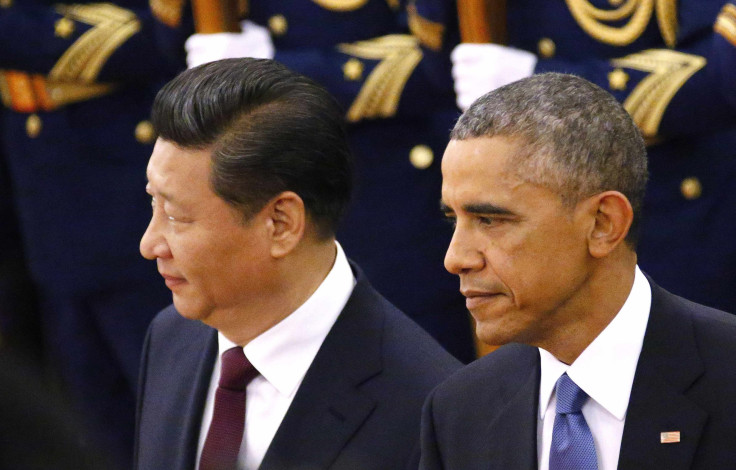China-US Relations: Obama's 'New Level' Push With China A Tough Sell In Washington

President Obama’s trip to Beijing for the Asia Pacific Economic Conference boosted, according to the official line, Sino-American relations, with a series of deals made with Chinese President Xi Jinping. Obama described the negotiations with China in the meeting to be the beginning of taking relations “to a new level.” But that vision may be derailed by a simple reality: Obama has just two years left in office. Xi, who took power in late 2012, will soon find himself with another American interlocutor.
“Even as we compete and disagree in some areas, I believe we can continue to advance the security and prosperity of our people and people around the world. That’s my vision for how we can develop the relationship between our countries. That’s the vision that we’ve advanced during this visit, which has taken our bilateral, regional and global cooperation to a new level,” Obama said in a joint statement.
This cooperation includes the announcement of a landmark deal that will hold China accountable for the amounts of greenhouse gases it emits, which is potentially game-changing for the top carbon emitter (in absolute terms, not per capita) in the world. For the first time China is committing to cap its carbon emissions alongside efforts by the U.S. to do the same. “I commend President Xi, his team, and the Chinese government for the commitment they are making to slow, peak, and then reverse the course of China’s carbon emissions," Obama said.
But what happens when he leaves office?
Barring a shocking leadership change, Xi’s reign is just beginning. Obama on the other hand is on the tail end of his time as president. “Obama can at best hope for a few positive headlines but there’s very little he can hope to gain,” Michal Meidan, associate fellow of the Asia Programme at London-based Chatham House, the Royal Institute of International Affairs, said in an email. “The personal dimension has always been important for China, and having the point person on China change frequently won’t help matters (...) He will need a strong interlocutor and Obama probably isn’t in that position now.”
The president's “next level” China plans are already being tested by the new Republican-majority Congress.
“I was particularly distressed by the deal he’s reached with the Chinese on his current trip, which, as I read the agreement, it requires the Chinese to do nothing at all for 16 years, while these carbon emission regulations are creating havoc in my state and other states across the country,” Senator Mitch McConnell of Kentucky, who will soon be the majority leader, said. His Republican colleague James Inhofe also expressed displeasure, calling the agreement “hollow and not believable.”
“Beijing is well aware of his domestic weakness and could use this to promote its interest, both economic and strategic,” Meidan said.
According to China’s state-run Xinhua News Agency, China has “six priorities” for its renewed relations with the U.S., and among them were a few hot-button issues. “The two countries should respect each other’s sovereign and territorial integrity as well as political system and development path, instead of imposing one’s will and model on the other, which is the important condition and foundation for the two countries to have a healthy, stable and sustainable relationship,” Xinhua said. This is referring to the opposing stances China and America have when it comes to China’s sweeping claims in the resource-rich South China Sea and East China Sea, as well as Hong Kong’s most recent push for more democracy, a movement that has been supported by the United States.
“The ‘next’ level seems to be a compromise, a way to reciprocate China’s ‘new type of major power relations’ without formally endorsing it,” Meidan said. “With China’s proposal, Beijing wants to be accepted as an equal partner to the U.S., but that also means that Washington should accept issues like China’s core interests, without being fully aware of what they entail.”
Correction: A previous version of this story quoted President Obama as mentioning "the next level" in relations between the U.S. and China. He actually said "new level." The story has been updated.
© Copyright IBTimes 2024. All rights reserved.












